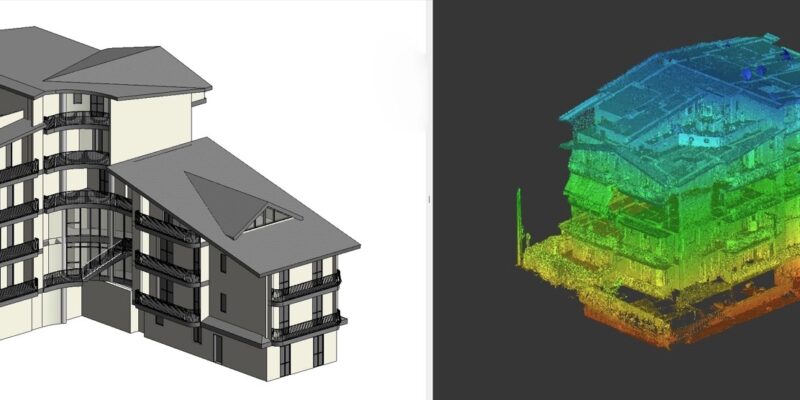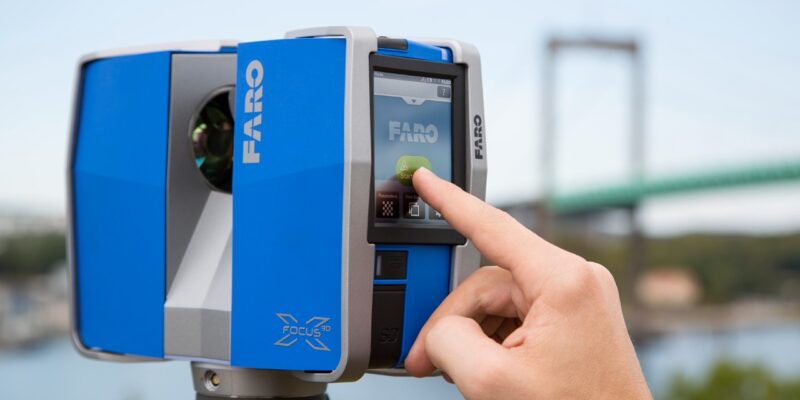In today’s fast-paced and ever-evolving construction industry, precision and accuracy are paramount. For construction projects to be executed successfully, Scan Building Services have become indispensable. These services, including 3D laser scanning, BIM (Building Information Modeling), and point cloud data processing, play a pivotal role in ensuring the efficiency and accuracy of construction and renovation projects.
Whether you are a construction manager, architect, engineer, or any other professional involved in the built environment, the choice of a reliable provider for your Scan Building Services needs can significantly impact your project’s success. This article provides an insightful guide on how to select the right provider for your scan building requirements.
Understanding Your Scan Building Needs
The first step in choosing the right Scan Building Services provider is understanding your specific needs. You must define the scope of your project and your budget. Determine whether you need 3D laser scanning, BIM modeling, or a combination of services. Clarity about your project’s scale and requirements is essential.
Researching Potential Providers
Local vs. National Providers
You can list your RV on RV rental marketplaces and platforms to reach a larger pool of possible renters. These websites aim to link RV owners with tourists who want to rent an RV for their trip. We won’t name specific platforms, but there are plenty of them, each with a unique user base and set of features. Look into these platforms to see which one best fits your requirements.
Industry Reputation and Experience
Look for providers with a strong industry reputation and extensive experience in Scan Building Services. A good reputation is often built on a history of successful projects and satisfied clients.
Available Services and Technology
Analyze the technology and services that possible suppliers are offering. Make sure they have the newest hardware and software available to produce accurate results. A supplier who can adjust to your unique requirements is what you want.
Evaluating Provider Capabilities
Accreditation and Certifications
Check if the provider holds relevant industry accreditations and certifications. These indicate their commitment to quality and adherence to industry standards.
Expertise in Relevant Industries or Sectors
Determine if the provider has experience in your specific industry or sector. A provider familiar with your type of project is more likely to understand and meet your unique requirements.
Communication and Collaboration
In every construction project, effective communication is essential. Evaluate how well prospective service providers interact with customers. A successful partnership requires open communication regarding project updates and the ability to address issues and make adjustments as needed.
Cost and Budgeting
Understanding the pricing structure of potential providers is crucial. Request detailed quotes to ensure you have a clear view of costs. Don’t hesitate to negotiate terms and conditions to align with your budget.
Quality Assurance and Compliance
Ensure that the provider adheres to industry standards and compliances. Quality control and assurance processes should be in place to guarantee accurate results. Also, inquire about warranty and support options to address any issues that may arise.
Project Timeline and Flexibility
Set project deadlines and evaluate the supplier’s capacity to fulfill them. As construction projects frequently encounter unforeseen changes and challenges, flexibility is essential. Make sure your supplier can adjust as necessary to avoid delays.
Risk Management and Safety
Safety is of paramount importance in the construction industry. Assess the safety measures employed by potential providers. Inquire about insurance coverage and liability, as well as contingency planning for unexpected situations.
Making the Final Decision
After considering all the factors mentioned above, you can create a shortlist of potential Scan Building Services providers. The decision you make will significantly impact the success of your project.
Conclusion
In the world of construction and development, the choice of a Scan Building Services provider is a crucial decision. The precision and accuracy of these services can make or break your project. It’s imperative to conduct thorough research and due diligence to find the right partner for your needs. Measure Up Corp. is here to support you in your scan building journey. Choose wisely, and ensure your construction project is in the hands of experts who understand the importance of accuracy, quality, and efficiency in every detail. Your success is our priority.


